Born in Mansfield, Pennsylvania, Tom McMillen became a teenage basketball star, going to the Olympics and playing professionally while he was also studying at Oxford. He continued his career in professional American basketball and then went on to be elected to the US House of Representatives, representing Maryland’s 4th district from 1987 to 1993 before being appointed co-chair of the President’s Council on Physical Fitness. Now active on several boards across areas including college sports and animal rights, McMillen also mentors young students, including those interested in and taking up the Rhodes Scholarship. This narrative is an edited excerpt from an interview with the Rhodes Trust on 20 December 2023.
Tom McMillen
Maryland & University 1974
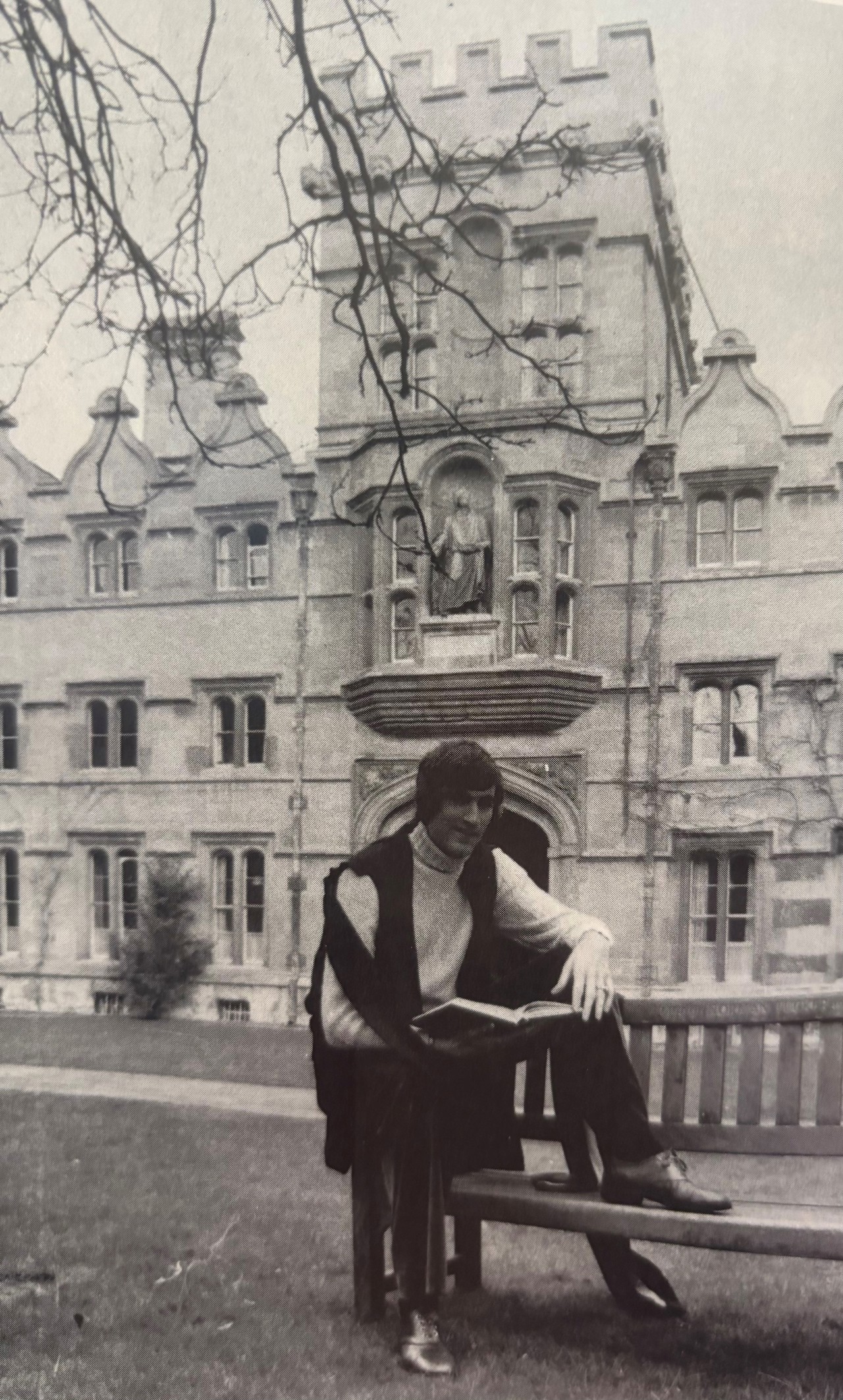
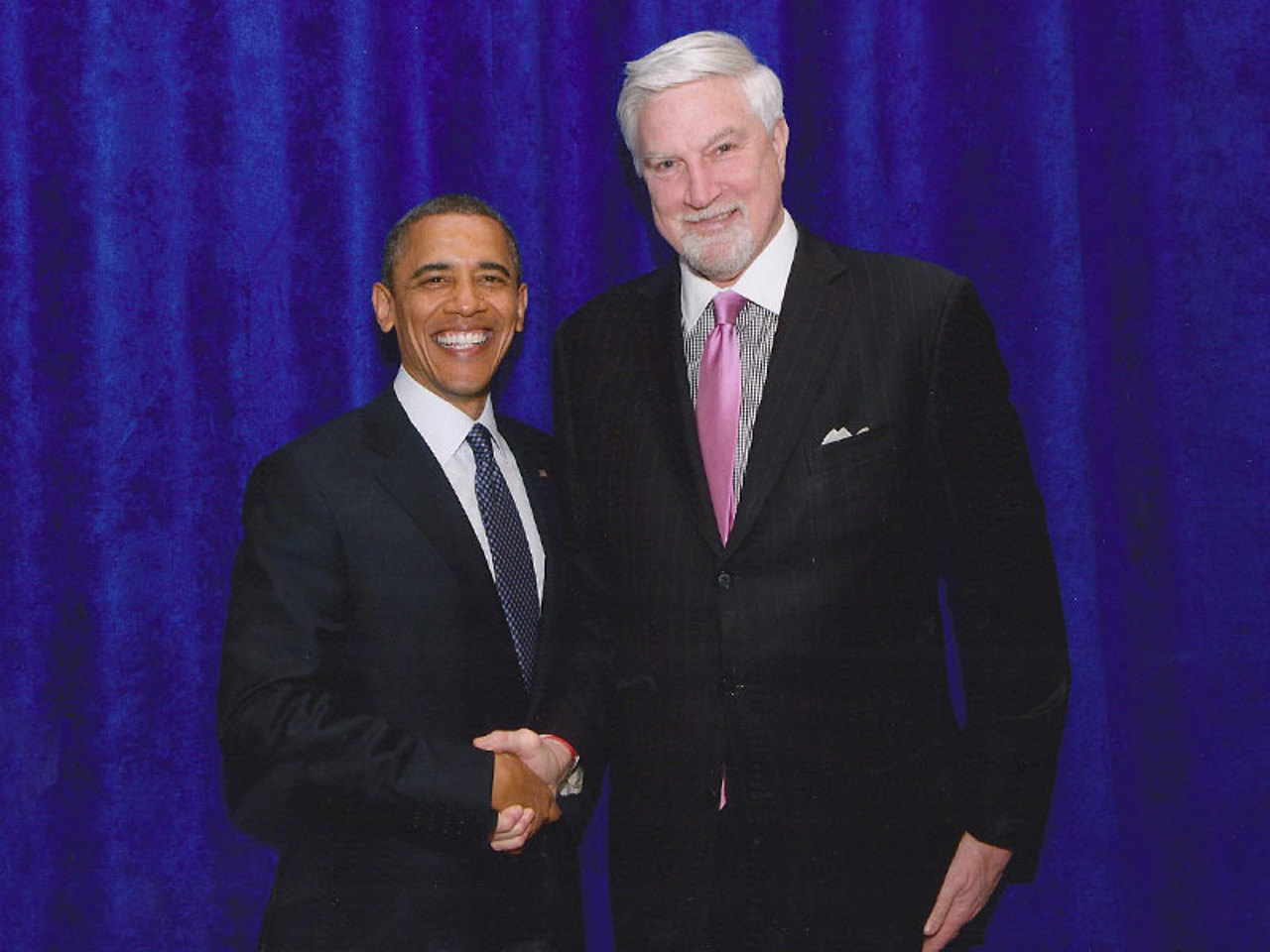
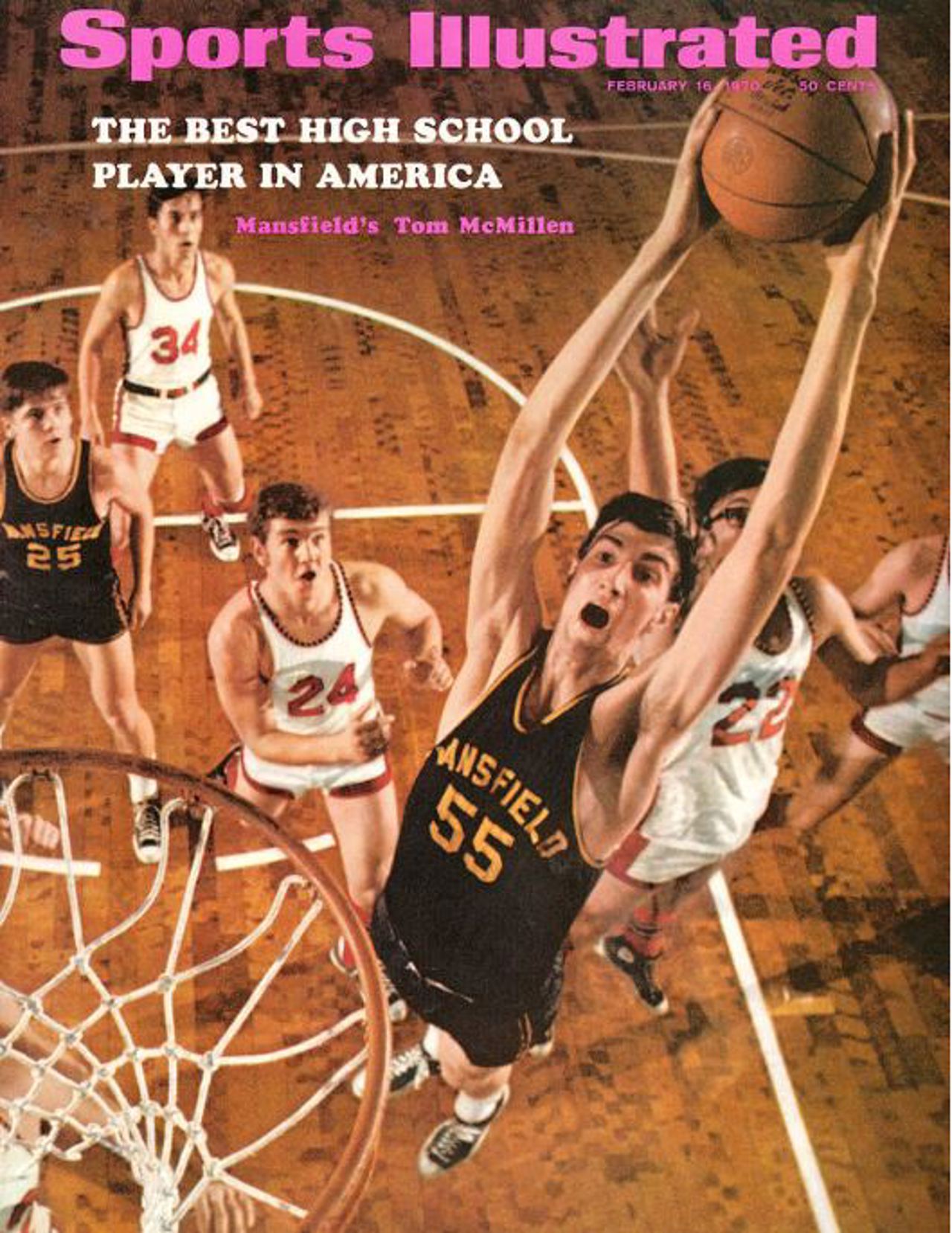
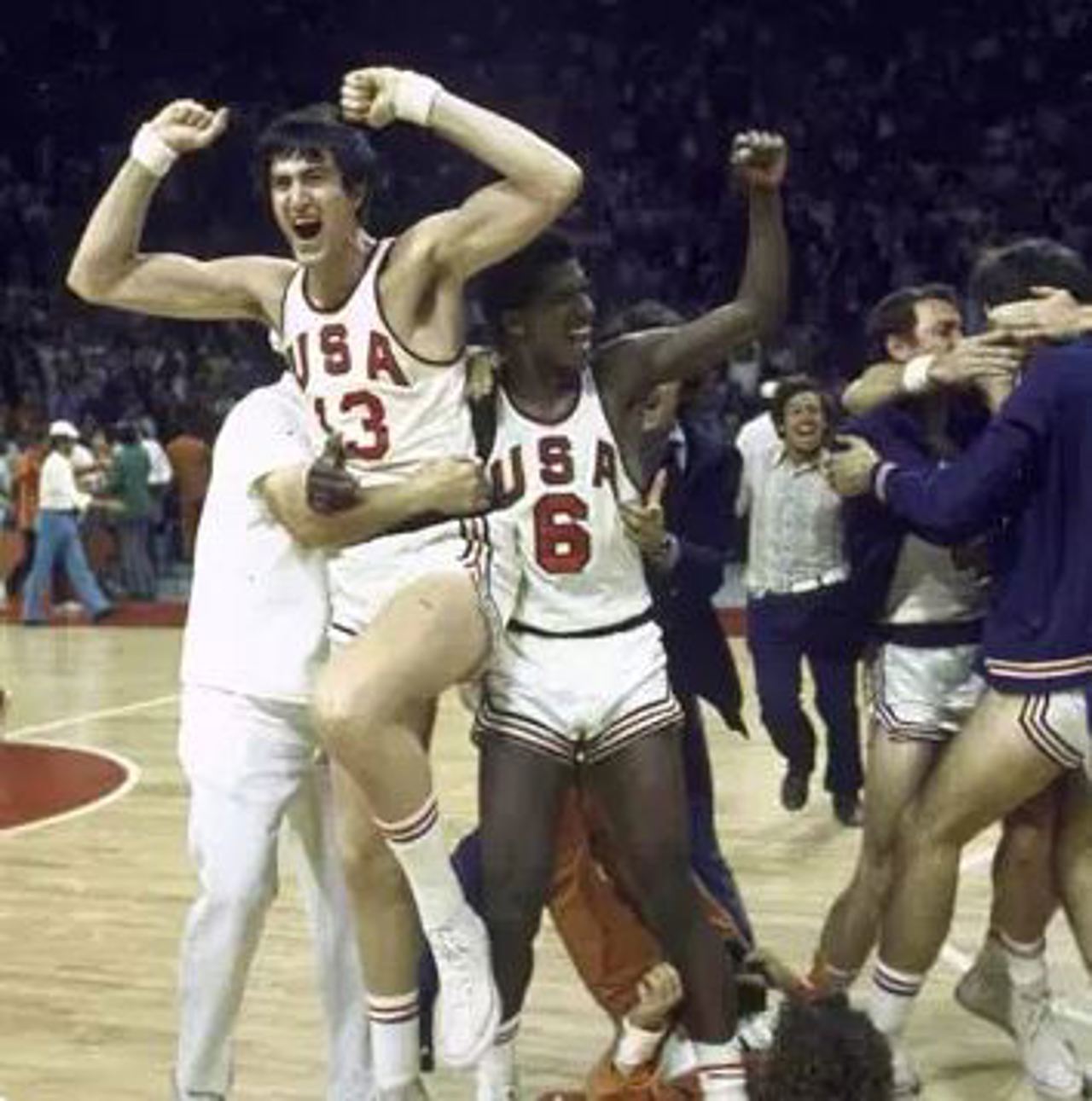
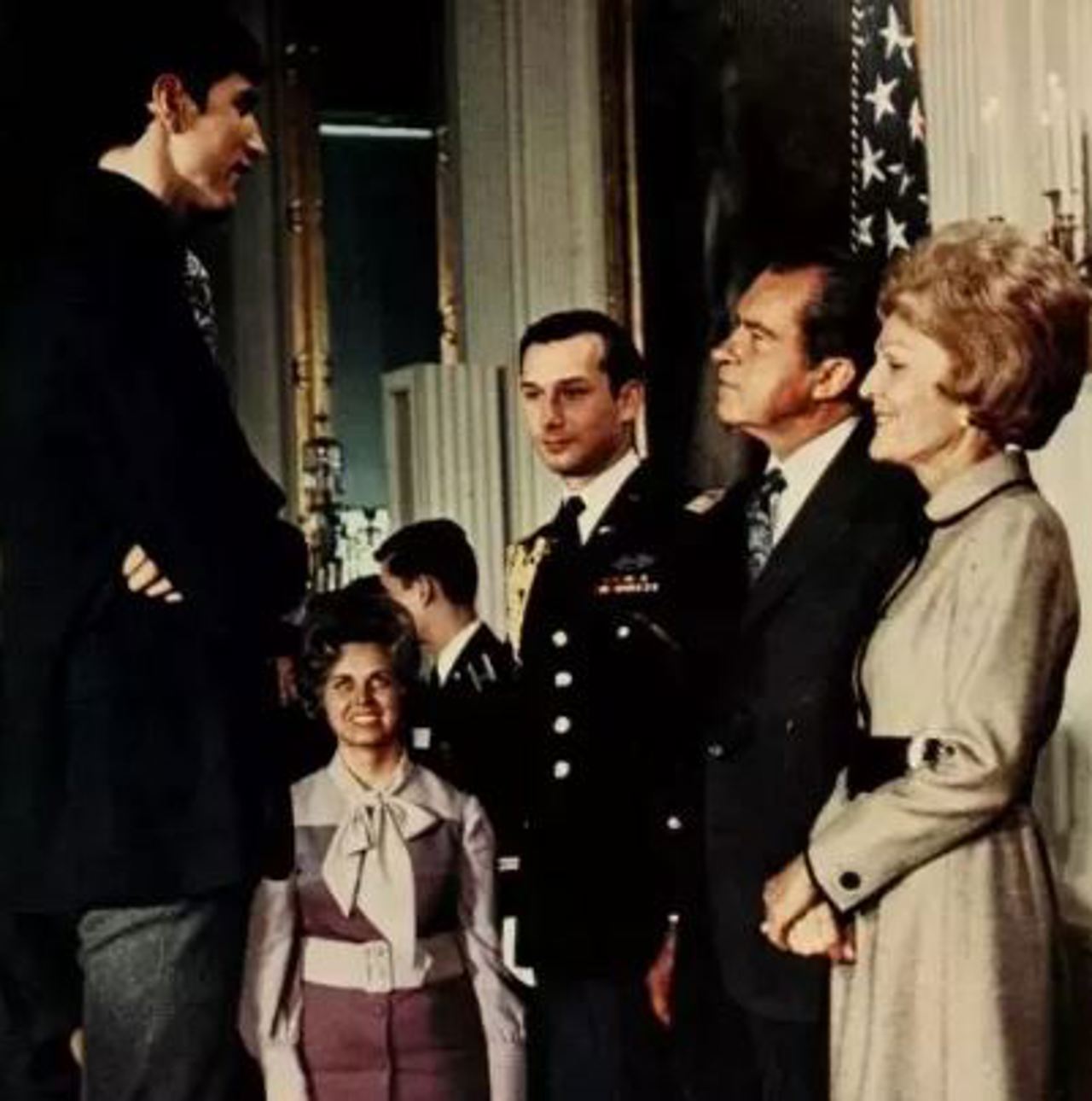
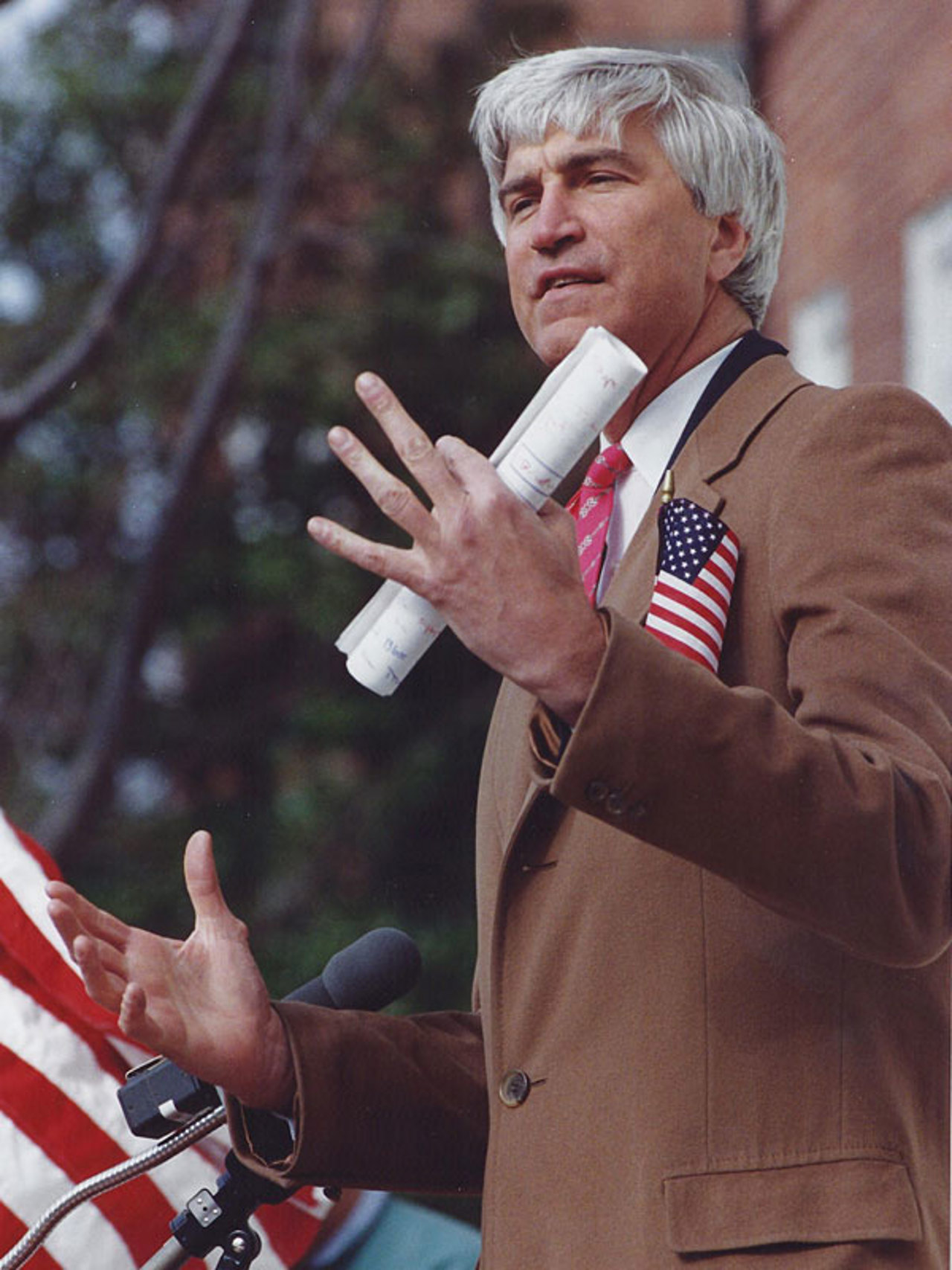
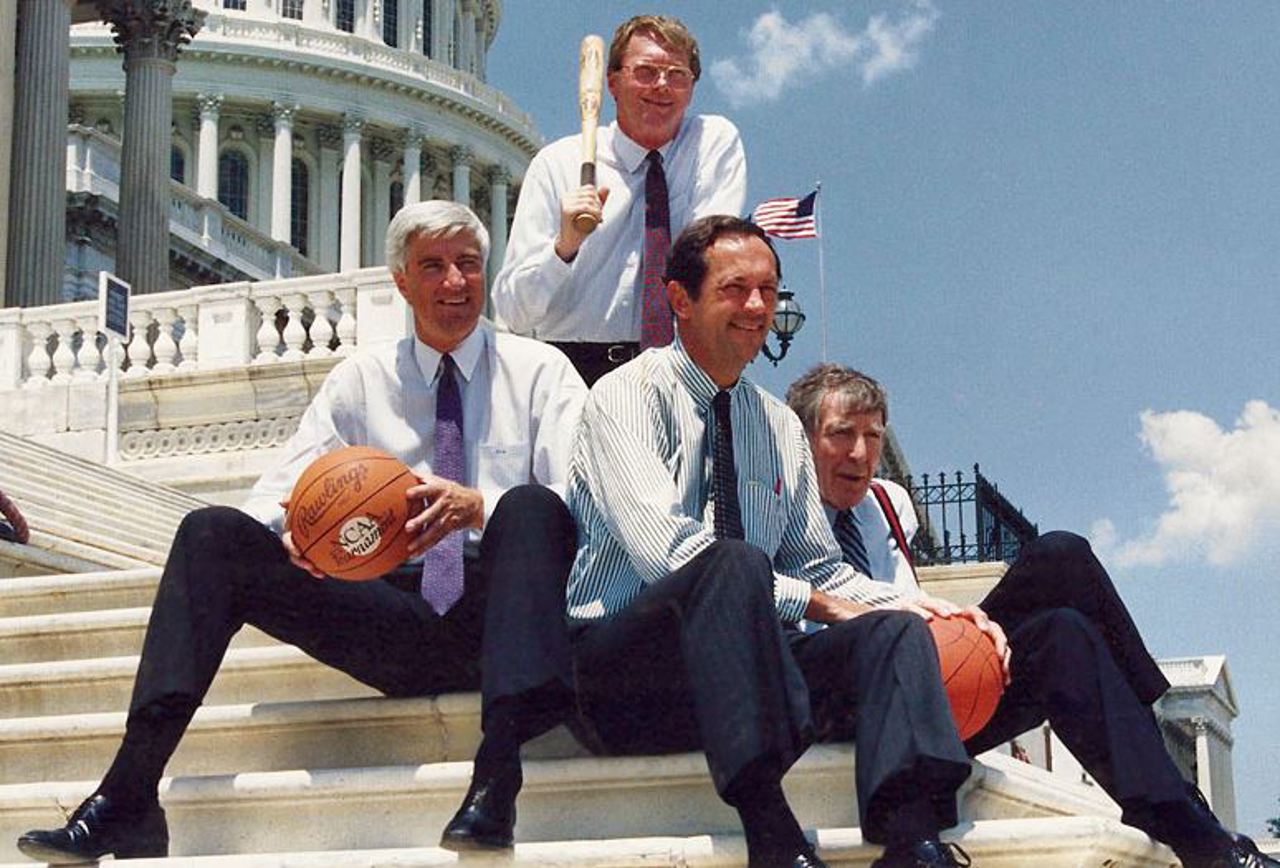
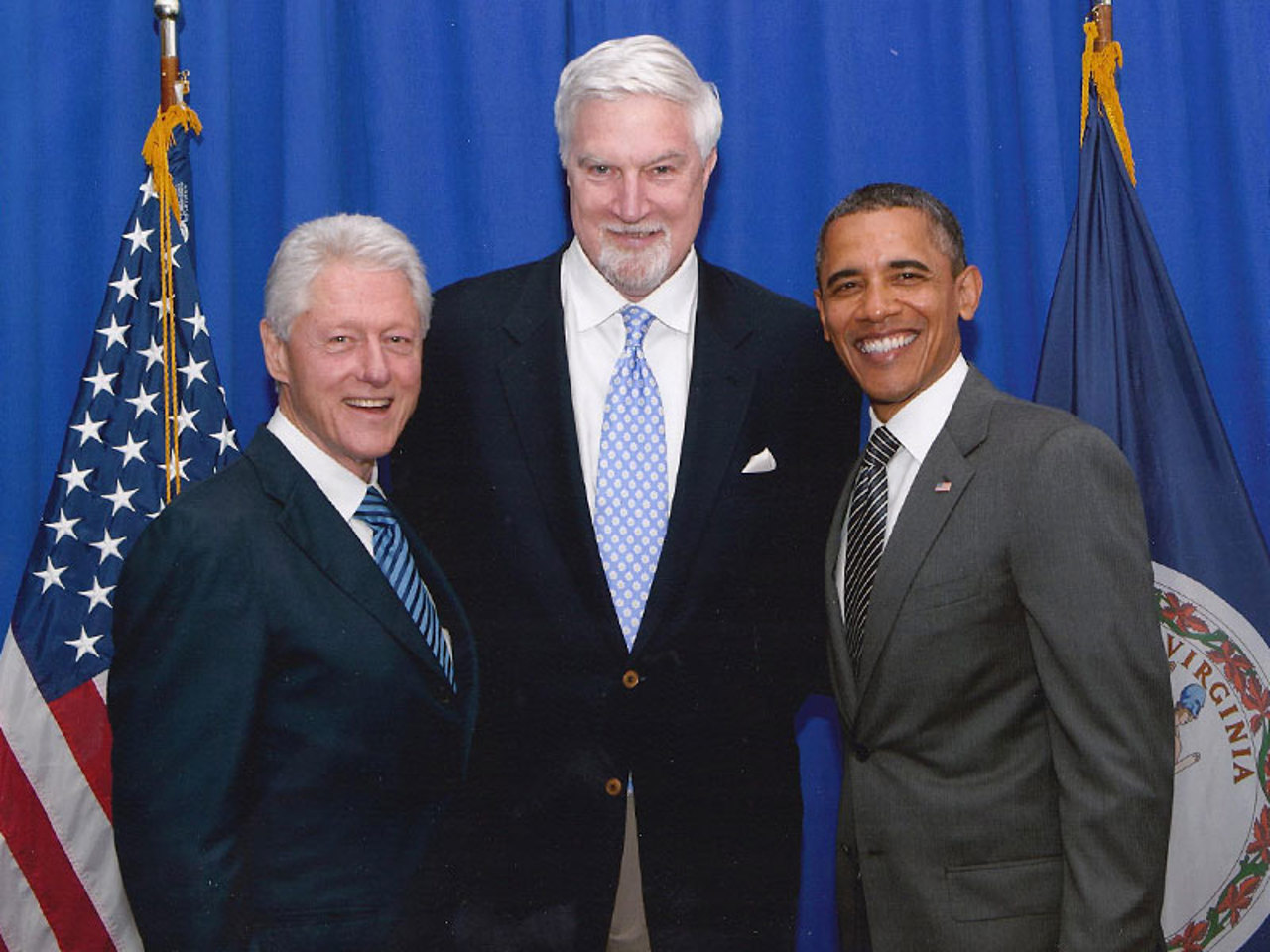
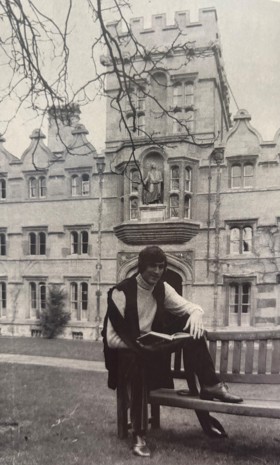
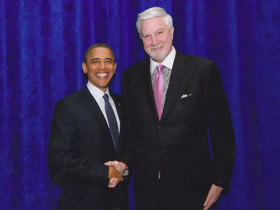
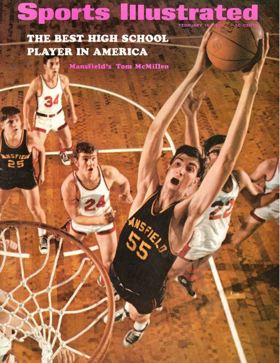
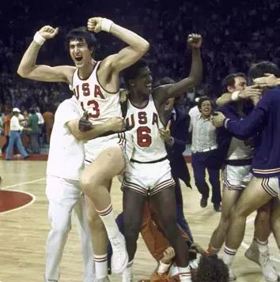
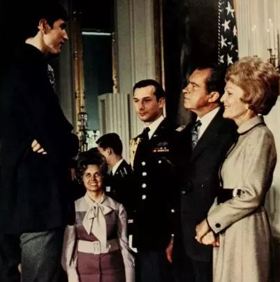
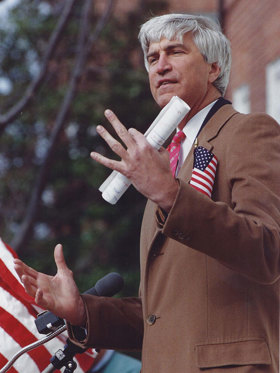
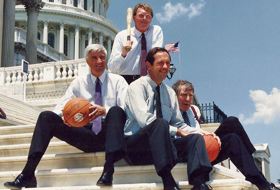
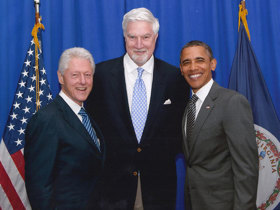
‘I was probably spending five or six hours a day playing basketball’
I was particularly lucky to grow up in a college town, not least because it meant that I could play basketball against college players. I was probably spending five or six hours a day playing basketball as a kid. My brother was already playing basketball, and we attracted a lot of attention early on. I was one of only a few high school students ever to be on the cover of Sports Illustrated, and then my town filled up with recruiters trying to get me to join their college teams. I also got a call from the Nixon White House, and I was recruited to join the President’s Council on Physical Fitness when I was only 17. Eventually, I chose to go to the University of Maryland, because by that time my father was very ill, and I knew he wanted to see me play. Maryland was much closer for him to travel than North Carolina. It was very hard to tell Dean Smith, the coach at North Carolina, that I wasn’t coming to Carolina, because Dean was an iconic/legendary coach. If you know anything about him, he was a real leader, not only in sports but off the court too.
In 1972, while playing for Maryland, I was part of the Olympic basketball team that went to Munich. The Olympic village in Munich was very modern, very spectacular. Then of course, the Olympics was an incredibly troubling experience because the village was invaded by Palestinian terrorists and eleven Israeli athletes and coaches were killed. It was the start of modern terrorism. And then, five days after that, we had to go on and play against the Russians for the World Championship, and we ended up coming from behind to win, but then the clocks were reset three times and the Russians eventually scored to claim victory. On the basis of how the game had been refereed and conducted, our team refused to accept our silver medals.
On winning a Rhodes Scholarship, being drafted by the NBA, and playing professional basketball...in Italy
I had my eye on applying for the Rhodes Scholarship for a long time, and I sought out other Rhodes Scholars to ask for their advice. I don’t remember a whole lot about my interview, but I can say that interview month was very intense. There were the Rhodes interviews, I was playing college ball with two west coast trips, and my father was very ill. In fact, he died around Christmas, not long after I found out that I had been selected as a Rhodes Scholar.
After college, I signed a professional basketball contract in Italy while on my way to Oxford. The NBA was tolerant enough at that time to allow me to suspend playing in the NBA for a year. The whole Oxford experience, over the span of my four years there, was terrific, but I think that first year was one of the hardest things I’ve ever done. I was playing with a professional basketball team in Italy, and I had 55 games that year. When I arrived at Oxford, I had no idea how I was going to make it work. What I ended up doing was going to my tutorials and then being driven to Heathrow, flying to Milan, driving to Bologna. I would eat a bowl of spaghetti, play in the game, then back to the Rome airport and get on a flight at five in the morning. I’d be back at breakfast in college by eight. And then my attorney told me I needed to come back to the US so that I could be signed by an NBA team there. I asked the Warden of Rhodes House whether I could do my course across a number of years, and just in the Trinity Terms in the summer. He said ‘No’, but then I found out that Cecil Rhodes had actually only gone to Oxford in the Trinity Terms, so I went back to the Warden armed with that evidence, and he immediately agreed. So, that’s how I did it. And what was really useful about having all that time on planes and in airports was that I just took my books with me and kept on reading.
‘I remain very passionate about the American experiment’
I’d always had an interest in politics, and that really grew while I was at Oxford. I finished my studies there in 1978 and was playing for the New York Knicks and Bill Bradley (Missouri & Worcester 1965) was on the team with me. He’d been my hero, and I watched how he was laying the groundwork to be involved in politics. By that time, I was looking at running for Congress, and I was elected in 1986. All the time I was running, I was still playing professional basketball. It was another juggling act, but I was able to learn so much. I was traded to the Atlanta Hawks, to this great owner, Ted Turner, and was able to live in the place that was the home of Jimmy Carter, just as he was becoming president in 1976. Then, I asked Ted Turner if I could be traded back to Washington so that I could get prepared to run for Congress. I think maybe I’m the only political trade they’ve ever made in sports!
Several things really stand out for me from my time in Congress. One is voting with President Bush to go into the first Gulf War, and the huge responsibility of that. Then, when I was a member of the Banking Committee of the House, we effectively forced the government to use private sector resources to dispose of real estate assets during the savings and loan crisis. It really did make a difference with billions of savings for the federal government. Bill Bradley and I went on to pass the bill that required colleges to publish graduation rates for athletes and other students. Making college athletics as good as it can possibly be for the students is still something I work on, and I’ve sat on a number of university boards.
After I finished Congress, President Clinton appointed me to become co-chair, with Florence Griffith Joyner, of the President’s Council on Physical Fitness. That was coming full circle!
I remain very passionate about the American experiment and trying to make it better. Having served in Congress and then watched in horror of what happened on that 6 January, I know I’m going to stay involved, because I believe that this experiment has been noble and tremendous for the world, but democracy is fragile. You must get involved, support candidates. You’ve got to put your boots on, get out there and work, because it’s not a spectator sport. I’m also passionate about the rights of animals. I’m on the board of the American Humane Society and conveying that notion of empathy with animals is enormously important to me.
‘Make sure you’re on the right side of that line’
I’m still very involved with the Rhodes Scholarship, supporting the Scholars of today. For me, one of things that’s especially interesting about the Rhodes is the mind/body nexus. Going back to the genesis of the Scholarship based on Cecil Rhodes will at the turn of the century, it was very connected to Pierre de Coubertin. He was the founder of the modern Olympics in 1904 and a big believer in the Greek ideal of the mind/body connection. It doesn’t have to be only about being an athlete. There are many ways to express it, but I think the mind/body connection is still extremely important.
To current and future Rhodes Scholars, I would say, really get to know your classmates. They will be lifelong friends. Also, never stop the educational pursuit, never stop the learning process. And don’t go into your shell with respect to fighting the world’s fight. Now, more than ever, we need people to stand up and be that kind of civic minded person. It doesn’t have to be about going into government – although I would say that we really need high quality people running for government – but there are many ways to pursue public service without running for office. One thing I would say is, whatever the nature of your public service, it’s always a fine line between personal aggrandisement and truly wanting to fight the fight, so make sure you’re on the right side of that line.
